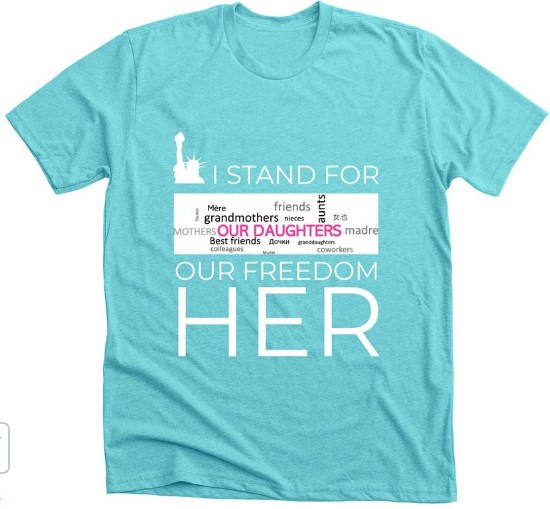Safe Access
Why Abortion is a Human & Constitutional Right
This Safe Access training is designed to empower individuals, voters, advocates and elected officials to understand the impacts of Dobbs v Jackson, and to take action to protect women’s rights, human rights and restore constitutional integrity in the United States. At All People Thriving, we recognize that everyone’s views and experiences are real, true and valid. We also recognize that when it comes to the law, people’s personal choices, their personal relationship with religion, and their bodily autonomy must be respected. Today, many voters, legislators and even judges don’t understand why the Dobbs V. Jackson ruling was a critical threat to human rights and the United States Constitution. That’s why we developed Safe Access: Why Abortion is a Human and Constitutional Right. This self-guided learning kit honor’s each person’s individual views and beliefs about abortion, while empowering voters, legislators, advocates and judges to understand why abortion is a fundamental human and constitutional right. It also provides tools for learners to take action to correct the Dobbs V. Jackon ruling and protect human and constitutional rights for future generations.
Who Is It For?
Safe Access is for everyone who wants to learn more about safeguarding women’s reproductive rights. It’s also envisioned for use by:
- Human Rights Advocates;
- Voters;
- Elected officials and policy-makers;
- Judges and law enforcement professionals; and
- People who want to learn more about reproductive rights and human centered policies
Become an Advocate

Sample Letter to Elected Officials
Honorable [Last Name of Elected Official]:
My name is [insert your name], and I live in your district. When it comes to abortion, I believe [insert your personal beliefs (if desired)]. Regardless of my personal beliefs and opinions, I know that safe access to abortion is fundamental human right, and is protected by Article IV, Section 4 of the United States Constitution, as well as the 1st, 4th, 5th, 8th, 9th, 13th and 14th amendments. I also know that forced pregnancy laws are considered a crime against humanity, and result in increased mental and emotional trauma for women and men, increased poverty, increased single-parent homes, increased homelessness, increased child abuse, and many other issues that impact the entire community.
As a constituent in your district, I’m asking you to take this training at https://allpeoplethriving.com/safeaccess and take action to protect and honor the human rights, reproductive rights, and constitutional rights of America’s daughters, mothers, wives, aunts, nieces and best friends.
I would also like to be informed of how you plan to address this issue.
Sincerely,
[Insert your name]
Find Your U.S. Senators
https://www.senate.gov/senators/senators-contact.htm
Find Your U.S. Representative
https://www.house.gov/representatives
(When you click this link, if you are unaware of your district, you can use the Look Up tool in the top right-hand corner of the screen.)

Tips for Healthy, Human-Centered Dialogue
How we share our opinions on important topics can impact our relationships with others.
Blaming, shaming, name-calling and fear tactics are often not effective. In fact, they can also be considered a form of oppression against another human being.
“You shouldn’t have an abortion. People who have an abortion are murderers and sinners. You should rot in hell or prison.”
“People that oppose abortion in the case of rape or incest are fascist devils! You should be tried for treason! Your son or daughter should get raped, so you know how it feels!”
Importantly, the oppressive communication style doesn’t provide dignity or respect to the listener; It only allows for the speaker to communicate their personal opinion and negative feelings. In many ways, the listener has been “dehumanized”, and relationships are likely to be damaged as a result.
Human First communication honors and respects the humanity of the speaker and the listener. This style uses “I” statements, and comes from personal experience. It’s an opportunity to share deeper personal feelings, and in fact, create a relationship with someone, even if there is a disagreement.
“I don’t personally support abortion because I truly believe that conception is a miracle. When I think about abortion, it makes me feel sad because I can see the potential for human life, and what good can come from it. Truth be told, I really wish no one would have an abortion.”
“I support abortion because my sister was raped. I saw how much pain it caused, and how it hurt her physically, mentally and emotionally. She couldn’t eat, she couldn’t go to work. She lost her job. Eventually she decided to get an abortion and her life turned around. Today she has an amazing family with two beautiful children she chose to have with someone she loves. When I hear people oppose abortion, it feels like they want my sister and other rape victims to suffer. I never want anyone else to have to go through the pain my sister went through.”
In this style, the person has conveyed their feelings, and the reason why. It’s not confrontational and allows the listener to see things from the communicator’s perspective, whether or not they agree. Importantly, it demonstrates dignity and respect for both the communicator and the listener.


